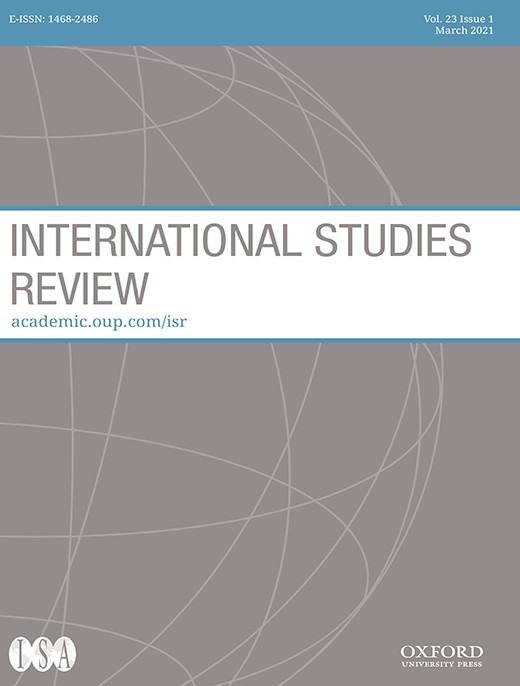-
Views
-
Cite
Cite
Liza Dallo Rihmo Hijam, International Climate Negotiations: Processes and Politics, International Studies Review, Volume 23, Issue 1, March 2021, Pages 221–222, https://doi.org/10.1093/isr/viaa067
Close - Share Icon Share
Extract
Global Climate Policy offers a helpful introduction to climate diplomacy, broadly capturing the main issues and challenges within climate politics (e.g., international climate regimes and cooperation). Some of its contributors examine existing climate regimes, politics, institutions, diplomacy, and the involved states, while others use game theory or computer simulation models to provide a more abstract theoretical analysis of how climate politics unfold. The editor, Luterbacher, opens with “Our Approach,” which summarizes, integrates, and extends these various perspectives (Chapter 1), methodically linking their arguments and weaving a continuous discourse on climate change debates. It also identifies coordination and cooperation moves in climate actions, thereby locating the failures and successes of existing climate policies. As the international climate regime is an evolving institution, the volume cumulatively offers a critical examination of the existing international structures and the avenues toward creating a new form of international cooperation.
Bodansky and Rajamani first introduced the 1992 United Nations framework Convention on Climate Change (UNFCCC), which cemented the foundation of the United Nations (UN) climate regime (Chapter 2). Familiarity with this history is important because the UNFCCC's institutional framework shaped—and still shapes—climate negotiations, including the Conference of Parties (COP) meetings and agreements, such as the Kyoto Protocol (1997) and the Paris Agreement (2015). The authors trace historic moments in the institutionalization of basic goals and principles in the global climate policy process: principles of common but differentiated responsibility, mitigation, commitments, funding, technology transfer, and carbon trades. All are still key issue areas for current climate diplomacy.





